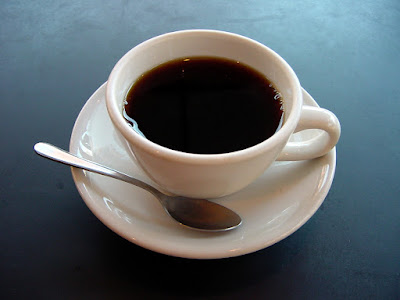Commercial farmers of perennial crops have an inherent problem.
The cheapest, most efficient, and most cost-effective method of growing something where the roots (or the entire plant) persists from year to year -- which includes fruits, nuts, and tropical products like coffee and cacao -- is to plant a large quantity of a single variety of plant. The difficulty is that the plants are therefore closely related genetically, if they're not out-and-out clones, and susceptible to the same pests and diseases. It's what did in the Irish potato farmers during the 1840s and 1850s; late blight (Phytophthora infestans) wiped out the single-variety potato crop five years running, resulting in the Great Famine in which a million people starved to death and another two million left Ireland for good, one of the largest exoduses from a single country in the history of humanity.
This is increasingly the situation being faced by the people who raise bananas. Virtually all the bananas produced commercially are a single variety -- the Cavendish banana -- all descended from root cuttings of a plant from Mauritius that was in the greenhouse of the Duke of Devonshire. Those cuttings were sent first to Samoa and other islands in the South Pacific, and thereafter to the Canary Islands, West Africa, and South and Central America, where the variety was found to be resistant to a fungal infection called Panama disease that had wiped out the previous main cultivar ("Gros Michel").
The problem is -- as we're seeing from COVID-19 -- pathogens have a way of staying one step ahead of us, and now there's a strain of Panama disease that kills Cavendish bananas. Unfortunately for those of us who, like myself, love bananas, there is no obvious next strain to turn to.
The other plant in a similarly dire situation is -- and I hate to bring this up -- cacao. Chocolate producers are fighting an increasingly long list of pests and diseases that target cacao plants, which are notoriously fragile and easy to kill. As with banana growers, there is no good option for cacao farmers other than to fight the pathogens and insects when they show up and hope for the best.
Hearteningly, the situation is a little better with another of the world's most beloved crops, which is coffee.
In fact, this is the reason why the topic comes up; an article in Nature a couple of weeks ago looks at a different species of coffee (Coffea liberica) that shows real promise in avoiding some of the difficulties of growing the two main varieties, arabica (Coffea arabica) and robusta (Coffea canephora), which make up (respectively) about 55% and 45% of the commercial coffee in production. The plants have better heat and humidity tolerance, and good resistance to coffee leaf rust and coffee wilt disease. Liberica coffee (often called "excelsa" in the trade) was initially discounted because of the quality of coffee it produced, but that seems to be because the larger seeds have to be processed a little differently or they lose a lot of their flavor. Dealt with correctly, liberica coffee has (according to the writers):
...a mild, smooth, pleasant-flavoured coffee of low to medium acidity and low bitterness, as per historical accounts. Tasting notes include cocoa nibs, peanut butter, dried fruits, Demerara sugar and maple syrup; and for samples from South Sudan, there are notes of raspberry coulis, figs, plums and milk chocolate.
All of which is awesome but a little mystifying to me. You probably know that there are people called "supertasters," who have a far greater acuity in their senses of taste than average, and who can pick out all the delicate nuances of taste in things like coffee, chocolate, wine, and so on. I, on the other hand, am the opposite. I'm a stuportaster. I have two taste buds, "thumbs up" and "thumbs down." Presented with most cups of coffee, my response is "coffee good, want more." (The rest of the time my response is "coffee bad, no thanks.") I do the same thing with wine, much to the dismay of the sommeliers when we visit wineries, who love nothing more than blathering on about the wine's nose and flavors and notes and finish, and do not appreciate a dolt like me who pretty much just drinks it and looks around for a refill. So while I'm glad there's someone around who can pick out notes of Demerara sugar and raspberry coulis in their morning cup of coffee, for me it kind of starts and ends with "me like it lots."
In any case, it's encouraging that the coffee farmers may be able to escape dire situation being faced by owners of banana and cacao farms. It's bad enough facing the prospects of losing two of them; losing all three would just be catastrophic, even for people like me who only have two taste buds.





